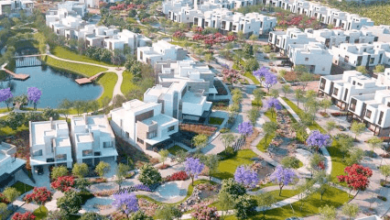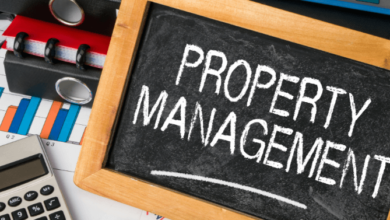Navigating the Dubai Real Estate Market: A Guide for First-Time Buyers

Dubai, a city known for its luxury, innovation, and rapid development, has become a prime destination for real estate investment. With its stunning skyscrapers, diverse culture, and a booming economy, many individuals are eager to dive into the market. However, for first-time buyers, the Dubai real estate market can seem overwhelming and complex. This guide aims to provide prospective buyers with essential insights and practical tips for navigating the Dubai real estate landscape effectively.
Understanding the Dubai Real Estate Market
The Dubai real estate market is unique and multifaceted, characterized by a mix of residential, commercial, and industrial properties. As of 2023, the market has shown resilience, with property prices stabilizing after fluctuations in previous years. According to the Dubai Land Department, property transactions in Dubai reached AED 151 billion in 2022, indicating a robust recovery from the pandemic’s impacts. Understanding the market dynamics, including supply and demand, pricing trends, and legal regulations, is vital for first-time buyers.
Researching the Right Location
Choosing the right location is one of the most critical decisions a first-time buyer must make. Dubai’s real estate landscape offers a variety of neighborhoods, each with its own appeal. Areas like Dubai Marina and Downtown Dubai are popular for their vibrant lifestyle and proximity to amenities. Alternatively, neighborhoods like Jumeirah Village Circle (JVC) and Arabian Ranches offer more family-oriented environments. Researching the location’s commercial developments, schools, and transport links can help buyers make informed decisions about where to invest.
Understanding Property Types
Dubai’s real estate market offers a diverse array of property types, including apartments, villas, townhouses, and commercial spaces. First-time buyers need to identify what type of property suits their lifestyle and investment goals. For instance, apartments may be more suitable for young professionals or investors looking for rental income, while villas offer more space for families. Additionally, understanding the differences in ownership structures, such as freehold and leasehold properties, is crucial in making the right choice.
Engaging with Real Estate Agents
Partnering with a reputable real estate agent can significantly ease the buying process for first-time buyers. Experienced agents possess an in-depth understanding of the market and can provide valuable insights into property values, neighborhoods, and legal considerations. When selecting an agent, look for those registered with the Dubai Land Department and with a solid track record in the market. A good agent will guide you through the entire process, from property hunting to negotiations and paperwork.
Understanding Financing Options
Financing is a critical aspect of any real estate investment. Dubai offers various financing options for both residents and non-residents, including mortgages from local banks and financial institutions. First-time buyers should research the mortgage market to find competitive interest rates and terms. It’s essential to have a clear understanding of the down payment requirements, which typically range from 20% to 25% for non-residents. Additionally, buyers should assess their financial situation to determine how much they can afford without overstretching their budgets.
Legal Considerations and Regulations
Understanding the legal framework governing real estate transactions in Dubai is crucial for first-time buyers. The Dubai Land Department oversees all property transactions and ensures compliance with local laws. Buyers should familiarize themselves with the necessary documentation, such as the Sale and Purchase Agreement (SPA) and the Title Deed. Moreover, it’s advisable to engage a legal advisor who specializes in real estate to navigate any legal complexities and ensure a smooth transaction.
Evaluating Property Value and Market Trends
Before making a purchase, first-time buyers should conduct thorough evaluations of the property’s value and market trends. This includes analyzing comparable property prices in the area, understanding rental yields, and assessing future developments that may impact property values. Online platforms and real estate portals provide valuable market insights, enabling buyers to make informed decisions. Engaging a property valuation expert can also provide an objective assessment of the property’s worth.
Inspections and Due Diligence
Conducting property inspections and due diligence is a vital step in the buying process. First-time buyers should never skip this crucial phase, as it helps identify any potential issues with the property. Inspecting the property for structural integrity, plumbing, electrical systems, and overall condition can save buyers from costly repairs down the line. It’s also prudent to check the developer’s reputation, especially for new developments, to ensure that they have a history of delivering quality projects.
Understanding Fees and Additional Costs
In addition to the property price, first-time buyers should be aware of additional costs associated with purchasing real estate in Dubai. These may include registration fees, agency fees, maintenance fees, and homeowners association fees. The Dubai Land Department typically charges a transfer fee of 4% of the property value. Budgeting for these costs is essential to avoid any financial surprises during the purchase process. Understanding the total cost of ownership will help buyers make more informed financial decisions.
Making an Offer and Negotiating
Once a suitable property is identified, the next step is to make an offer. First-time buyers should work closely with their real estate agent to draft a competitive offer based on market analysis. Negotiating the price and terms can be a delicate process, and having an experienced agent can make a significant difference. It’s essential to remain flexible and open to negotiations, as this can lead to a favorable outcome for both parties involved.
Finalizing the Purchase
After reaching an agreement, the next step is to finalize the purchase. This involves signing the Sale and Purchase Agreement (SPA) and paying the initial deposit. The SPA outlines the terms of the sale, including the purchase price, payment schedule, and completion date. Once the necessary paperwork is complete and payment is made, the buyer will receive the Title Deed, officially transferring ownership. It’s advisable to have a legal expert review all documents to ensure compliance with local laws.
Moving In and Settling Down
After the purchase is finalized, it’s time to move in and settle down. First-time buyers should plan their move and ensure that utilities and services are set up in advance. Familiarizing oneself with the neighborhood can enhance the living experience. Engaging in community activities and exploring local amenities can help new residents feel more connected to their surroundings. Understanding the rules and regulations of homeowners associations, if applicable, is also essential to maintain harmony within the community.
Read also: How to Maximize Your Learning Experience in Real Estate Programs
Conclusion
Navigating the Dubai real estate market as a first-time buyer can be a rewarding yet challenging experience. By understanding the market dynamics, researching locations, engaging with professionals, and being aware of legal and financial considerations, buyers can make informed decisions. With Dubai’s continued growth and development, the potential for property appreciation is significant. As the city evolves, first-time buyers have the opportunity to become part of its exciting journey, creating not just a home, but also a valuable investment for the future.





